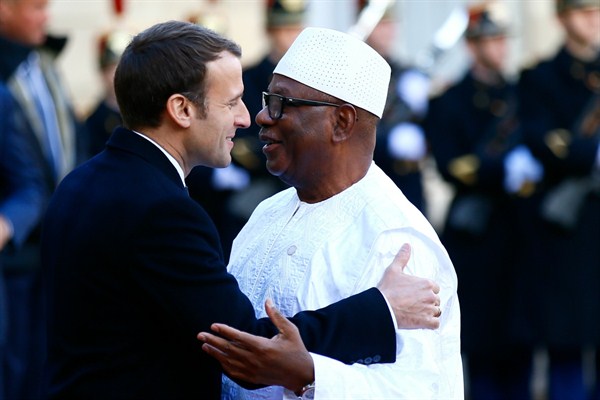Mali is set to hold presidential elections in July 2018. Pre-campaign maneuvering recently accelerated, with candidates declaring and likely candidates readying themselves to run. Although President Ibrahim Boubacar Keita enjoys the structural advantages of incumbency, events since last summer suggest he may be vulnerable next year.
Keita, known in Mali as IBK, will likely seek re-election after winning his first term in 2013. He is a veteran politician, having served as prime minister in the 1990s and president of the National Assembly in the mid-2000s. Like much of Mali’s political class, he has been on the political scene since the 1990s, the decade when Mali transitioned to multi-party democracy.
Keita came to power at a difficult moment. He took over in the immediate aftermath of the multi-faceted crisis of 2012, which involved a separatist rebellion, a military coup against the outgoing civilian president, a jihadi takeover of much of the north, a proliferation of “self-defense” militias, and massive displacement and hunger.

